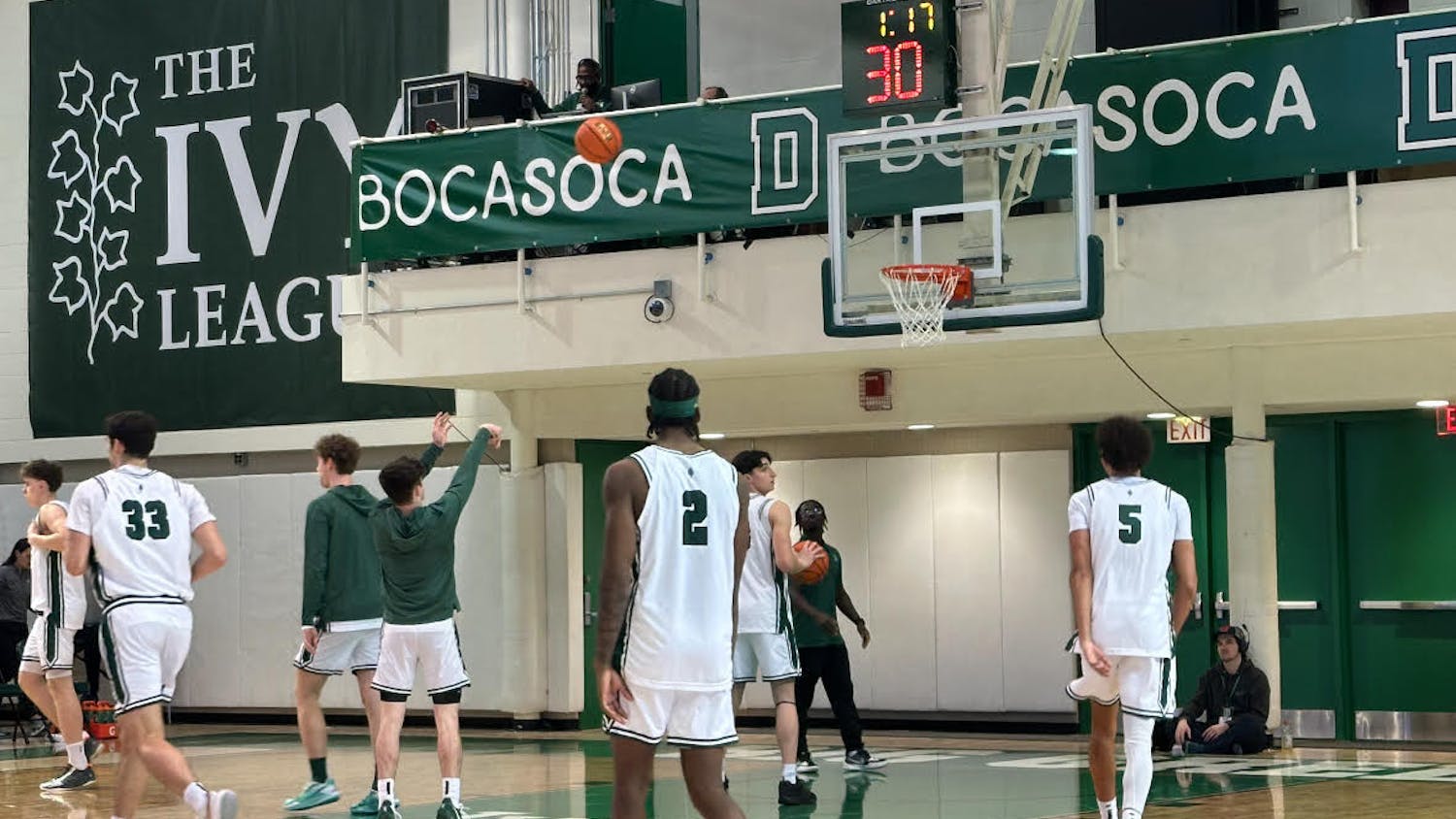For a lot of athletes, starting to play a sport meant having to seriously alter and adapt their diets.
Frake said he started becoming conscious of his diet when he realized he was overweight and that eating healthy would enhance his performance on the crew team.
"I'd say [eating well] has had a very big effect [on performance]," he said. "You are what you eat, essentially."
Aurelia Solomon '13, a member of the women's soccer team, said she was inspired by a coach to start eating better once she started playing high school soccer.
"I stopped eating fried foods, stopped drinking soda and I just started focusing on eating healthy foods," she said.
When Carolyn Gaut '13 joined the Dartmouth women's crew team, she decided that she wanted to gain weight in order to become more toned.
"I realized that the more weight I have to throw behind the oar, the more effective I can be as a rower," she said. "I think my non-crew friends thought I was crazy."
Once these athletes made changes to their diet, monitoring their eating habits became a constant responsibility to ensure a high-level performance in their sport.
"In a sport where there's constant competition year-round, you're always looking to stay in shape," rugby player David Gomez '11 said. "Half the equation is exercise and the other half is nutrition, so it sort of permeates my life."
As Dartmouth students, these athletes are not always training in Hanover. Many of them choose to take off-terms and study abroad, which can often mess with previously-regimented eating schedules.
Prewitt spent this past winter in Barcelona, taking classes at a local university and living in an apartment with friends. He said that adjusting to the later schedule in Spain and to having to cook meals "on [his] own dime" made it difficult to stay in the right physical condition for football.
"Our diet was God-awful," he said. "It consisted of spaghetti, eggs, potatoes and assorted meats. We hardly ate any fruits or vegetables."
Prewitt also said he ended up losing 15 or 20 pounds in Barcelona, forcing him to focus on putting the weight back on when he returned from Europe.
"As an offensive linesman, I have to keep myself at a good, heavy weight," he said. "You can't get too heavy, but you can't be too light either."
Solomon said she faced the opposite problem when she spent this past term studying abroad in Toulouse, France for the French Language Study Abroad plus.
"The diet [in France] is pretty much cream and butter," she said. "And I was living with a host family, so I couldn't really choose what I was eating. I ate a lot of foods I wouldn't usually eat."
For Solomon, adjusting to the new diet in France was difficult on a "mental level," as she knew she had to immediately return to training as soon as she got back to Dartmouth.
But being abroad is not the only obstacle that being an athlete at Dartmouth presents making independent decisions about what to eat within the dining halls has been equally challenging.
Frake was in the minority when he said that DDS has made it easier to eat healthily than at home.
"When my mom cooks, I often can't resist the food she cooks," he said. "Here at Dartmouth, I feel like there are a variety of choices, and I can definitely restrict myself to what I need."
Gomez said dining venues on campus, like the Class of 1953 Commons grill that is open late and offers plenty of unhealthy options, make it harder to exercise self-control.
"When there are fried foods and desserts at your disposal whenever you want, you have to watch yourself more than you would if you were at home," he said.
Prewitt said he wished that DDS would do a better job of displaying nutrition facts for each meal, as many members of the football team are always try to monitor their carbohydrate and sugar intake.
Prewitt and Solomon said most of the healthy options like fish are more expensive, forcing athletes to make an unhealthy choice in order to avoid going negative with their declining balance accounts.
But some students interviewed by The Dartmouth said their diets have not been affected at all by becoming an athlete in college. Mike Danaher '13, a member of the men's cross-country team, said playing a college sport has had "little to no" effect on his diet.
"As a distance runner doing large amounts of exercise, I always think that if the fire's burning, it will take anything," he said. "I'll eat whatever I feel like eating."
A typical meal for Danaher consists of some kind of meat, potatoes and a bag of chips. He also said he prefers eating the food on his plate in the order of most healthy to least healthy.
"I don't want to eat the stuff that I really like first because then I won't eat the healthy stuff," he said. "I save that as a reward for my efforts."
Despite the disparity between how much being an athlete affects the student's diet, almost every individual interviewed by The Dartmouth resoundingly agreed that the upcoming "all-you-can-eat" system in '53 Commons that has recently been under fire by a majority of the student body will make it easier to eat for his or her sport.
"A lot of the time, a lot of people I know will go negative in DBA simply because after a practice and after a game you're really hungry and want to eat a lot," Gomez said. "That's a big benefit of the all-you-can-eat location."




